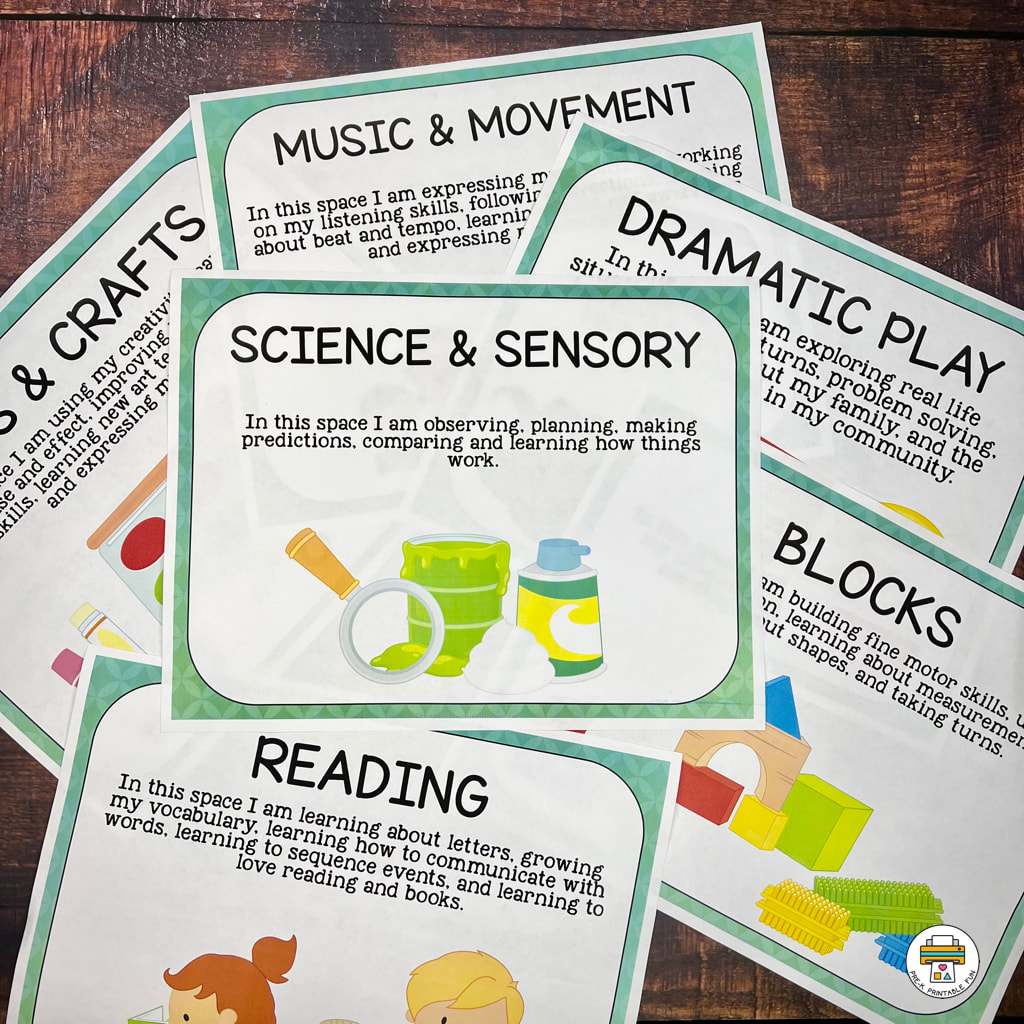Why Plan Your Preschool Lessons?One of the best ways to be prepared as a teacher is by having your preschool lessons planned. Whether you like to plan on a weekly, monthly, quarterly, or yearly basis- having a plan will help keep your teaching deliberate, in sequence, and focused on children's needs. Here are my top reasons for planning your preschool lessons and ideas for getting it done without feeling overwhelmed. 3 Benefits of Planning Your Preschool LessonsConsider these benefits as you think about creating your preschool lessons. Planning preschool lessons helps you be intentional about child development.One thing you'll hear often in the this field is the importance of developmentally appropriate practice. In a nutshell, this practice places focus on the caregivers ability to nurture a child's social/emotional, physical, and cognitive development. Through lesson planning, you can ensure the needs in these areas are met. Planning preschool lessons encourages creativity.Although there are many foundational concepts taught during this stage of a child's life, they still learn best through play. When you're creating lesson plans, you have a creative freedom to make concepts come alive through various activities, especially those that are hands-on, exploratory, and child-led. Planning preschool lessons helps you stay organized.As you connect ideas and make them visible for others to see (i.e. teaching time), having them pre-planned, written down, and in order will make for a smoother teaching time. There are many ways to get ideas, materials, supplies, and resources; however, it's how they are planned and stored that matters at "go time." How to Easily Plan Your Preschool LessonsNow that we've talked a bit about the benefits of planning your preschool lessons, let's look at some practical ways to do it. As you read these suggestions, keep in mind that you have your own personal approach and instinctual approach. Carry this uniqueness through the planning process and allow it to add joy and meaning to your work. Think about what you want to teach the children and why.There are many concepts and skills for children to learn at this age and there are many ways to approach teaching them. Consider what you want to teach your children and why it's important for them to learn it. Think of this step in terms of an educational plan that will be the foundation of everything else your children learn in the future. It is helpful to reflect, consider your intentions, and follow the best early education practices. Consider how you want to teach concepts and skills.What kind of teacher are you? What kind of students do you have? The answers to these questions can help you determine the approach to take when planning lessons, activities, and other learning experiences. Of course there are standards, guidelines, and regulations to follow; however, you can still include your personal stamp in your teaching delivery method. Choose a planning style.As I mentioned before, the are many ways to lesson plan. Some teachers like to plan weekly, bi-weekly, monthly, or even yearly. Regardless of which route you take, they all take intentional time spent creating the different elements that will come together as the lessons and activities your students will do. Choose a day (or more if needed) and time devoted to doing the next several suggestions. Create developmental goals.
Establish learning objectives.Learning objectives, are the road maps in planning your preschool lessons. In this post, I discuss using themes as a guide, which are a great jumping off point to determine your learning objects. For example, a theme on birds is a great way to meet the objective of exposing children to life cycles and observing seasonal changes in nature. Each objective, takes your student to another place in their educational journey, and the developmental goals (compass) previously discussed will help keep your objectives on track. Once you have these things figured out, you're now ready for the next suggestion. Plan activities.It is much easier to plan your day-to-day activities when you have identified your goals and objectives. Each lesson and activity should be conducive to the overall concepts and skills you are teaching. Keep in mind that you can enhance basic plans and take advantage of spontaneous events. Don't hesitate to go beyond the written lesson plans by:
Final ThoughtsPlanning your preschool lessons has many benefits and doesn't have to be a stressful task. Think about you, your students, and your intentions. Consider the ideas and tools you want to use, such as: planning sessions with other teachers or caregivers, certain curriculum and resources, specific planning methods, and so on. Include your own unique style and stay encouraged through the process! You might like:
|
What can I help you find?
Become a MemberGet Free
|
Learning Centers
Preschool Learning Centers are commonly referred to as Preschool Centers, or Learning Spaces. These are activity areas dedicated to a specific type of of play and exploring a variety of topics and activities. Download our Free set of Center Signs!
|
Site
|
|

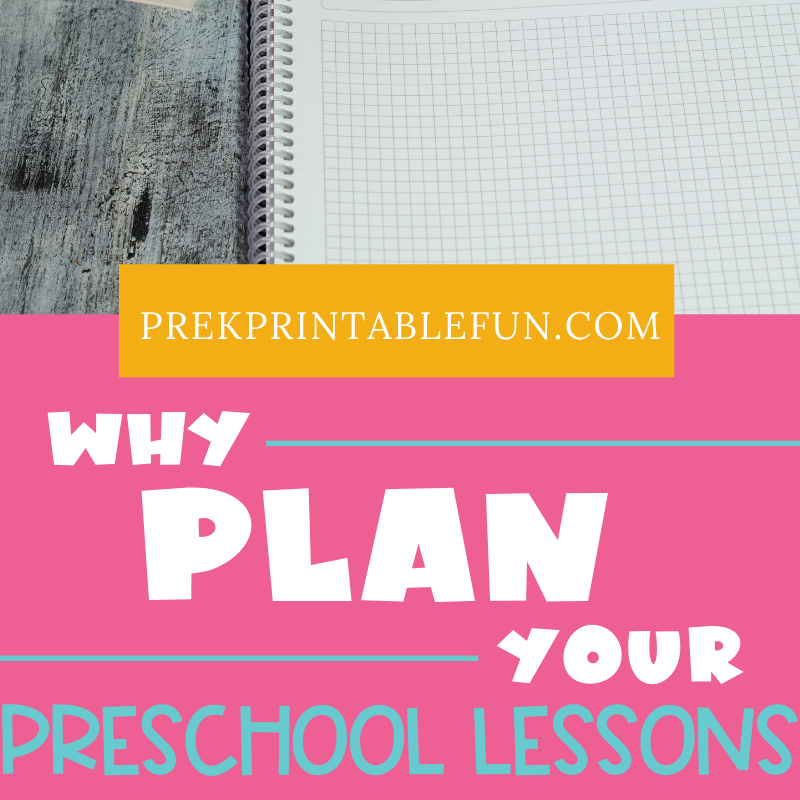

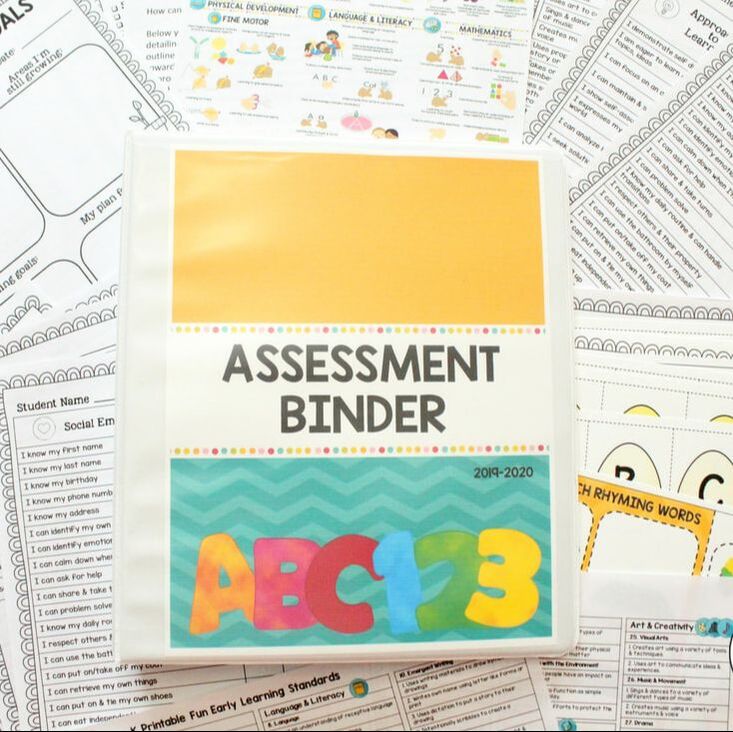
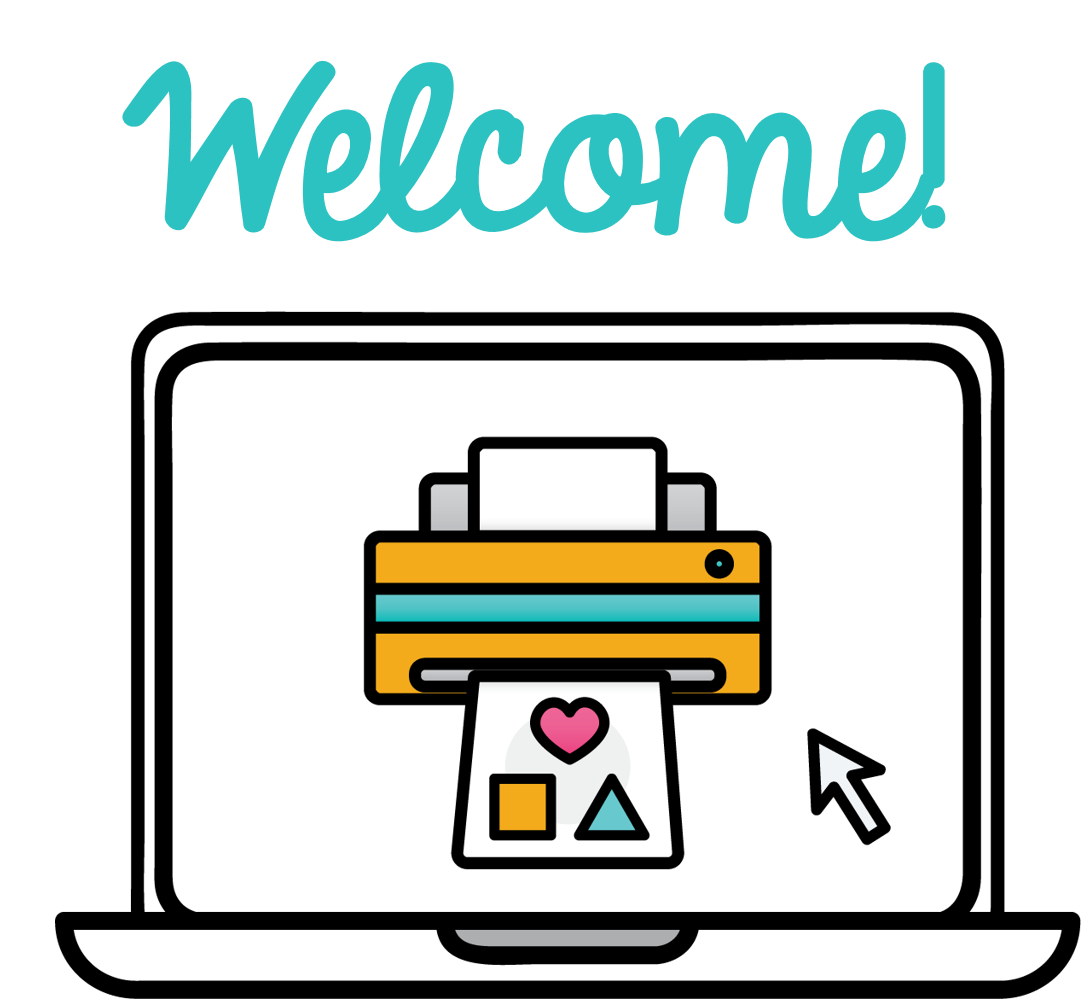

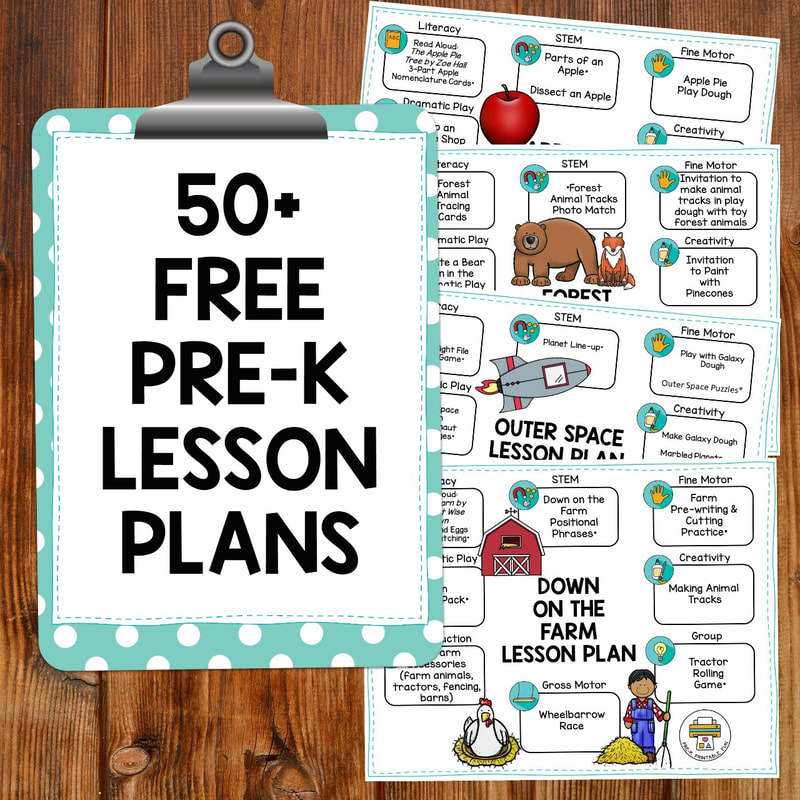
 RSS Feed
RSS Feed
